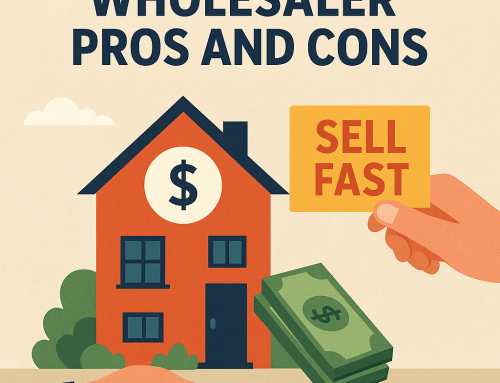- Understanding Your Responsibilities
- Assess the Home’s Value
- Preparing the Home for Sale
- Choosing the Right Selling Method
- Navigating the Legalities
- Market the Property
- Closing the Sale
- Conclusion
Inheriting a home can be an emotional experience filled with memories, but it can also come with the burden of responsibilities such as maintenance, taxes, and the emotional weight of parting with a family heirloom. If you find yourself needing to sell your inherited property quickly, understanding the steps involved can ease the process and help you achieve cash for your home without unnecessary delays.
Understanding Your Responsibilities
Before you sell the home, it’s essential to know the responsibilities that come with inherited property. This includes settling any outstanding debts, dealing with estate taxes, and ensuring the property is maintained during the selling process. Familiarizing yourself with these aspects will give you a clearer view of your obligations as the new owner.
Assess the Home’s Value
Obtaining a proper valuation of the property is a critical step. Consider hiring a real estate agent or a professional appraiser to assess the home’s worth. This will help you set a realistic price when it’s time to sell. Additionally, understanding the local real estate market can better inform your decision on whether to sell the home fast or hold out for a higher offer.
Preparing the Home for Sale
When looking to sell a home quickly, first impressions are paramount. Conduct a thorough clean-up of the property and consider minor renovations that can elevate its appeal. Even simple fixes like fresh paint, landscaping, or decluttering can make a significant impact and lead to a quicker sale.
Choosing the Right Selling Method
There are various avenues for selling your inherited home, each with its benefits:
1. Traditional Real Estate Sale: This method often involves working with a real estate agent, but it can take time, especially if the property requires repairs or upgrades.
2. Cash Buyers: If you’re looking to sell your home fast for cash, consider reaching out to cash buyers or real estate investment companies. These buyers often complete transactions quickly and typically purchase homes in as-is condition, eliminating the need for repairs or staging.
3. For Sale by Owner (FSBO): If you feel confident in your ability to manage the sale, listing the property on your own is an option. However, this requires time and effort on your part to market the home effectively.
Navigating the Legalities
Selling an inherited home involves certain legal processes, which can be overwhelming. You’ll need to gather necessary documents such as the will, proof of inheritance, and any property deeds. Consulting a real estate attorney can simplify this process and ensure you comply with all legal requirements.
Market the Property
If you choose to sell through traditional methods, marketing your property is crucial. Leverage online listings, social media, and open houses to reach potential buyers. Highlight features that make the property unique, and don’t hesitate to use high-quality photos to showcase your home.
Closing the Sale
Once you find a buyer, the closing process can seem daunting. However, understanding what to expect will help facilitate a smooth transaction. This phase may include the negotiation of terms and possibly some back and forth regarding the sale price. If you’re selling to a cash buyer, the closing can often happen much quicker.
Conclusion
Inheriting a home can lead to various paths, and selling it for cash can provide relief from financial burdens while allowing you to move forward. Whether you opt for a traditional sale or seek cash for your home through investment companies, being informed about your options empowers you to make the best decision for your circumstances. By preparing adequately and seeking appropriate guidance, you can navigate the selling process with confidence and ease.




